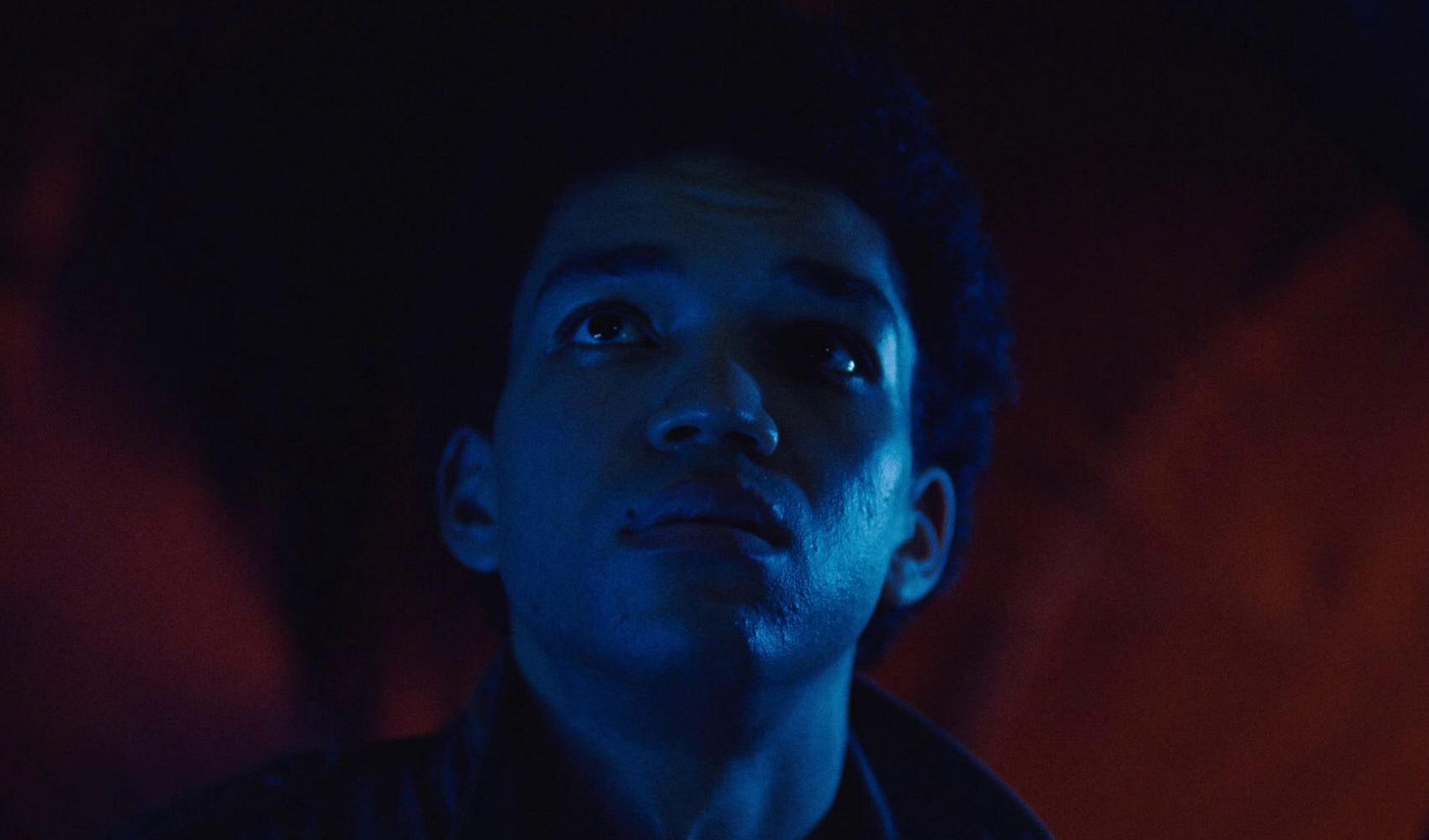Hey—I’m Mohnish Soundararajan, a filmmaker in Portland, Oregon, the director and screenwriter of the upcoming ‘Monochrome’, and a member of Desert Island Studios.
Reflection: On the existential battle of being your true self, and I Saw the TV Glow
One of the hardest things—the hardest thing to do—is to be yourself.
But when I say it like that, it feels imprecise. It feels vague and amorphous—what the fuck does ‘be yourself’ even mean?—and that's because we're talking about something in a vague and amorphous field. If I was talking about a chair, and I told you—hey, can you move that chair over there!—you know what I’m talking about because I want you to move a very tangible, very real, very made-out-of-wood chair through a three-dimensional space to a very specific spot. It's obvious, you get it, it makes sense, and there's no reality in which you don't know what I'm talking about.
But when it comes to matters of the psyche, matters of our interiority, that space is non-tangible. It whispers to us in feelings and echoes and shouts into a deeper void within us, and I think it is one of the reasons why film and novels and great art that probe this space feel so illuminating—because, it feels, all of a sudden, like a vague and amorphous field that is undefinable and out of grasp—like a flash of light from the darkness!—is clear again.
The problem is: our authenticity is buried underneath another sort of pseudo-authenticity of who we think ourselves to be.
When you want a cheeseburger, when you want to be a finance major, when you want to go after a specific relationship, when you want to be one of the cool kids, when you want to have a certain specific lifestyle, the wanting feels real. People don’t talk about this. The wanting feels as real as anything else that you do.
And in a sense, it almost feels authentic. You're like—fuck, I really want this cheeseburger. I want it now.
Maybe you sense a flimsiness, an emptiness. But the primary feeling is: I want it. Your psyche, your complexes produce the sensation and feeling that you want something—and it feels, in a sense, real. And after one, two, three-thousand wants—it produces an image: this is who I am. I am a person that wants these things, and out of the wanting, you’ve constructed—officially—a life.
And yet the problem is: underneath our minds, underneath our thoughts, underneath our complexes, there's sort of a deeper sense of who we are, a deeper more mysterious sense of who and what we are. And it's a more instinctual self. A more true self.
I wish I could point to it on a map and show it to you—I wish I, myself, knew this foreign geography so well I could nail down the location as precisely as a highway, or an address. I wish it was as tangible as a chair.
But on some level it’s not real—it’s amorphous, viscous, a vapor within yourself than you feel, and it is so, so hard to really wrap your head around that your life—the life you have built—can wrap itself in another direction.
It's a self that—maybe—you had more access to as a child. And it's this self that is constantly covered up with complexes as we age, with our insecurities, and our compensations, with the life we have accumulated.
And so the problem is, we grow up, and we have—in our 20s, in our 30s, in our 40s, in our 50s—a conflict.
And it is a conflict between this other self and the self that we've constructed.
One of the things I loved about I Saw the TV Glow, directed by Jane Schoenbrun, is that it tackles this phenomena from an experiential level: the difficulty of being a genuine, authentic self, and the struggle to see this amorphous field, this field that, almost, doesn’t really exist. It is the about the struggle of denying and glimpsing who you really are. It is about how—in a material, physical world—this space inside of ourselves can be completely neglected. As Søren Kierkegaard puts it:
“The greatest hazard of all, losing one's self, can occur very quietly in the world, as if it were nothing at all. No other loss can occur so quietly; any other loss - an arm, a leg, five dollars, a wife, etc. - is sure to be noticed.”
The main character here is Owen—the center of the saga—and there's another character—Maddy—who tries to engage with Owen (though years, decades), attempting to pull Owen out of a kind of self-induced, hallucinatory state of not really being who they are.
I'm being vague here—I want you to experience the film nakedly, without a sense of the details (discovering the details are what make the film so exciting). But the textures, the kind of lovely slowness of the film, the colors—lots of neon here!—the music (Jesus, so good) and the performances (Christ—also good), as well as the existential drama that's at the center of this film, completely blew me away when I watched it.
And it also spoke to something very, very true to me—something near and dear to me—and it’s this: there are things inside of us, parts of ourselves, instincts, things that we want out of our lives—and it is this self that is covered up with the weight of our lifetimes, the weight of our constructions.
Sometimes, you find your way back.
And sometimes, it takes decades before you finally catch a glimpse.











